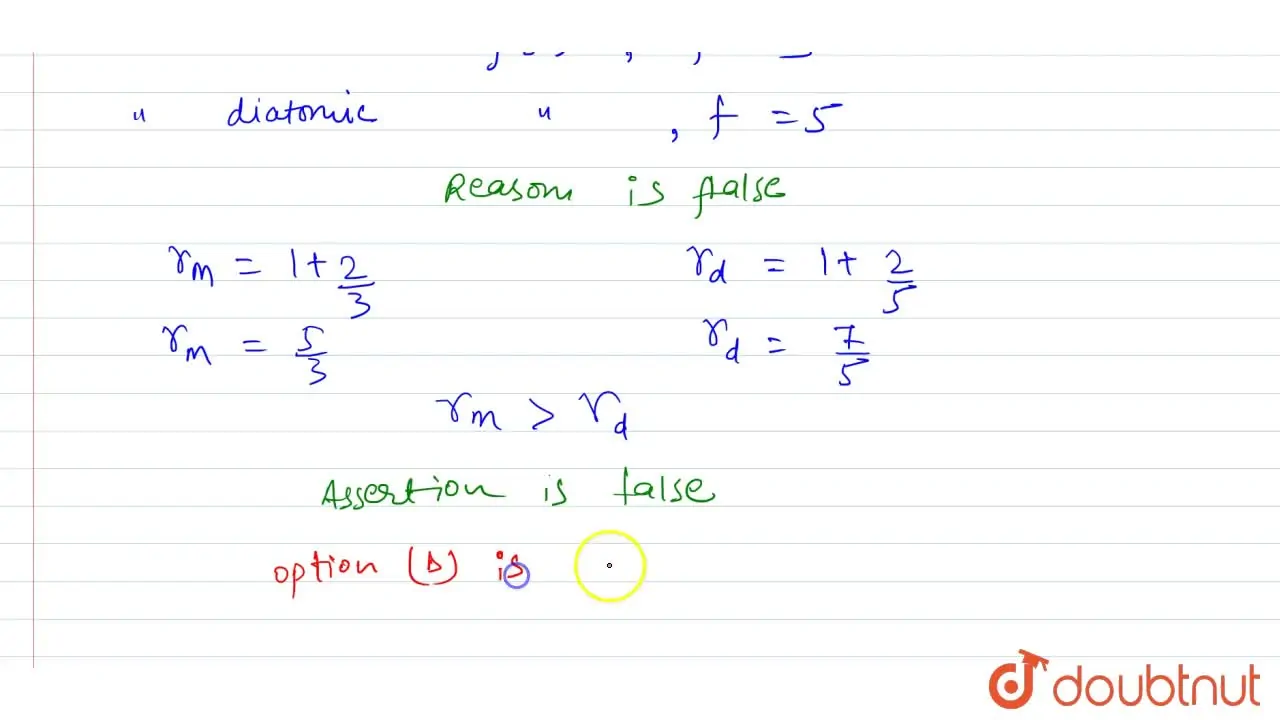Assertion : The ratio CP/Cυ for a diatomic gas is more than that for a monoatomic gas.
Reason : The moleculess of a monoatomic gas have more degrees of freedom than those of a diatomic gas.
If, both Assertion and reason are ture and the Reason is the correct explanation of the Assertion.
If both, Assertion and reason are true but Reason is not a correct expationation of the Assertion.
If Assertion is true but the Reason is false.
If Both, Assertion and reason are false.
The correct Answer is:D
For a monoatomic gas, no of degree of freedom n=3, and for a diatomic gas, n=5.
As, CpCυ=γ=1+2n∴(Cp(Cυ)mono>(Cp(Cυ)di
Both the assertion and reason are false.
Related Playlists
Similar Questions
Heat capacity of a diatomic gas is higher than that of a monoatomic gas.
View SolutionWhat is the degree of freedom in case of a monoatomic gas?
View SolutionAssertion: The Poisson's ratio for diatomic gases is more than for monoatomic gases.
Reason: Diatomic gases possess more degree of freedom.View SolutionThe number of degres of freedom of diatomic gas are
View SolutionThe heat capacity of a diatomic gas is higher than that of a monatomic gas.
View SolutionAssertion : The molecules of a monatomic gas has three degrees freedom.
Reason : The molecules of a diatomic gas has five degrees of freedom.View SolutionEach molecule of a gas has f degrees of freedom. The ratio γ for the gas is
View SolutionDegree of freedom for Diatomic gas is
View SolutionIf a gas has 5 degrees of freedom ratio of specific heats of gas 5
View SolutionAssertion : The ratio CP/Cυ is more for helium gas than for hydrogen gas.
Reason : Atomic mass of helium is more than that of hydrogen.View Solution


